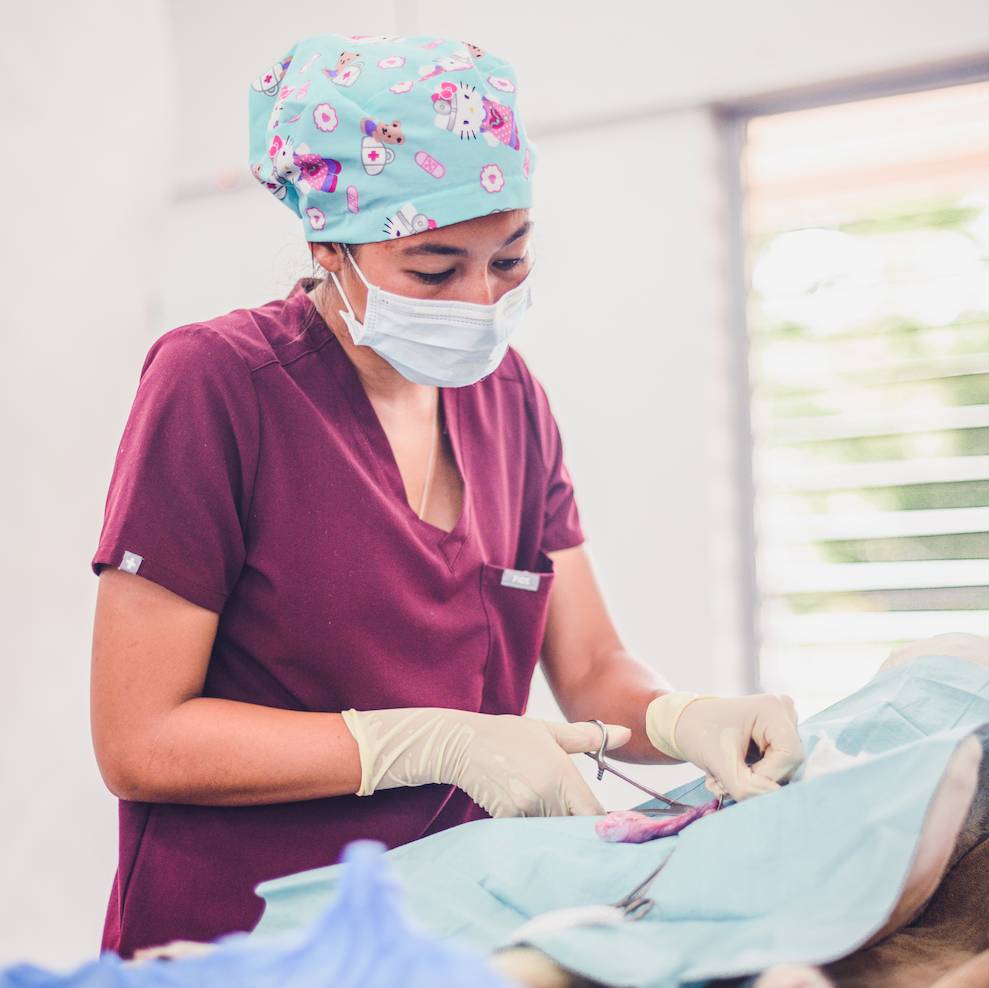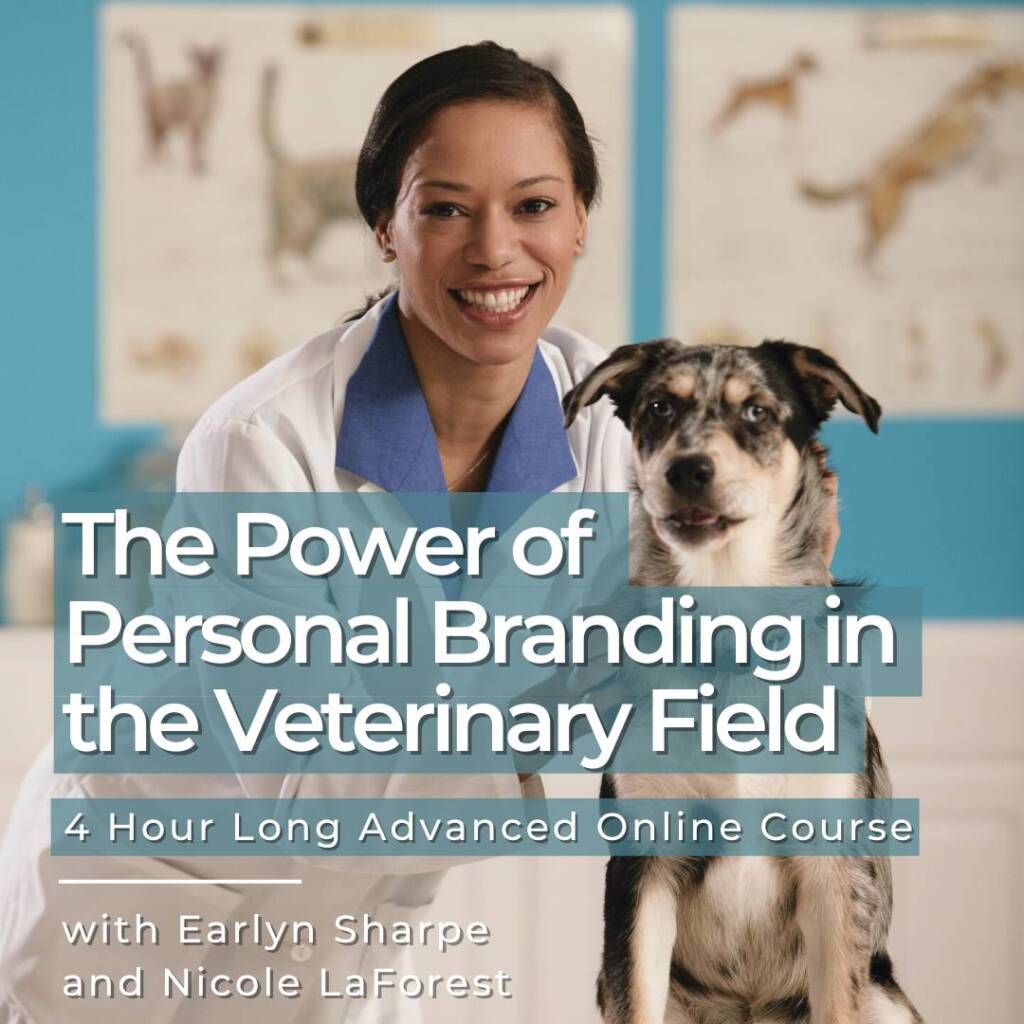There is no “right” way to get into vet school

Today, I find myself truly living my best life as a second-year veterinary student at Western University of Health Sciences, wrapping up my on campus courses and preparing to head into clinics next fall. I’m finally fulfilling a lifelong dream, but it took me four application cycles, more than 30 rejections, and eventually returning to school as a post-baccalaureate student to get here.
I know it can be confusing—and even daunting—to re-evaluate your application and figure out how to improve yourself in just six to nine months before the next application cycle. As someone who started with a below-average application, I’ve explored many different avenues to improving my application and I’d like to share those strategies.
Let’s be honest: the most challenging part of reapplying is usually figuring out how to boost your GPA in a short period of time. Here are the options I considered:
1. Retake courses at a community college.
This is where I started. Community college courses are relatively affordable and the class sizes tend to be smaller. That means the professors generally have more time to interact with and help students. It was a great way to retake my organic chem series, since a lab was required. I had previously failed ochem three (yes, three) times, so it was the first course I needed to retake to make the biggest difference in my GPA.
2. Retake courses online.
After retaking ochem, I still hadn’t boosted my GPA enough—yet another round of applications went by with zero interview offers. In an effort to take even more classes without sacrificing time from my full time job at a shelter clinic, I enrolled in online classes. These courses (offered through four-year universities), were significantly more expensive, but offered a much broader course catalog than my local junior college and helped me balance academics with my busy work schedule.
3. Masters programs.
My next step was to apply to master’s programs. Several universities offer one year masters in biomedical sciences degrees, which are tailored to students who are trying to improve their GPAs. Think of it as a one-stop-shop for boosting your GPA, while earning a masters degree—which is actually increasingly common for veterinary students! An added bonus is that some programs are offered at universities with veterinary programs, which could help you in the next application cycle.
4. Post-baccalaureate programs.
Unfortunately, I was rejected from every masters program I applied to, bringing my total rejections up to 30 (of course, I kept track). At this point, I realized I couldn’t just keep retaking two to three classes at a time. I needed to go back to school as a full time student.
After doing some research, I discovered post-baccalaureate programs that allow students who have already earned a bachelor’s degree to re-enroll in undergraduate classes full time, choosing any classes they want. It’s the perfect scenario for anyone in my situation with a poor GPA who wants to retake multiple courses quickly.
In my personal experience at Oregon State, I had two options. In the first (and more structured) program, I would have enrolled in the college of biological sciences, where I would have access to guidance counselors, a list of recommended courses, and standard undergraduate registration. The second route, which is the one I took, since I was rejected from the first, was through the graduate college. I didn’t have access to counselors, received lowest priority registration out of all groups on campus, and paid per unit rather than a flat quarterly rate.
In the end, the post-baccalaureate program was my ticket to vet school. For a year, I only ever went from home to school. I took 17 to 18 units per quarter, and studied eight to ten hours per day, every day. It may sound like I gave up a lot—and it definitely felt that way—but nothing has ever been sweeter than finally getting that 4.0 I had worked so hard for, receiving interview invites, and FINALLY being accepted to veterinary school.
Ultimately, I hope my story shows you that there is no “right” way to get into veterinary school. Now that I’m here, I appreciate the four years it took me to get in. Even on the tough days, I am reminded there were times I would have done anything to be where I am now. There is no pre-exam study session or nerve wracking surgical competency test that will be more difficult on my soul than continually applying to veterinary school. Hopefully you don’t have to get all the way to option four like I did, but if options one or two don’t work out; I hope you find comfort knowing there are still possibilities—as long as you are willing to try.
MORE ABOUT THIS TOPIC ...
How do I make sure I make time for my friends without feeling guilty and overwhelmed?
With Tannetje' Crocker, DVM | 2021.10.02








